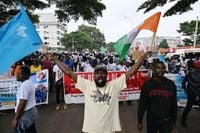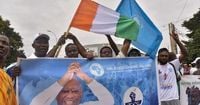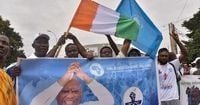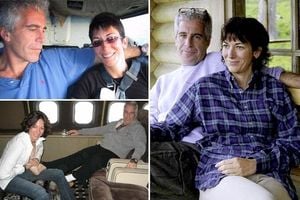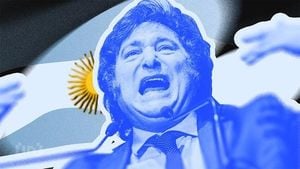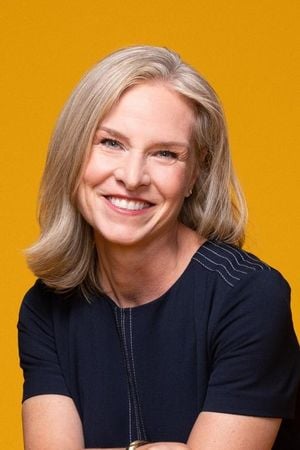On a sweltering Saturday morning in August, the streets of Yopougon—a bustling suburb of Abidjan—filled with the thunder of thousands of determined protesters. Their banners, scrawled with phrases like “Enough is enough!” and “No true democracy without true justice,” fluttered in the humid air, a visual testament to the mounting frustration simmering across Ivory Coast. The protest, which took place on August 9, 2025, was not an isolated event but part of a nationwide wave of demonstrations, as reported by the Associated Press and other international outlets. The catalyst? The exclusion of key opposition leaders from the upcoming presidential election, scheduled for October in this West African nation of 32 million people.
Ivory Coast, the economic powerhouse of francophone West Africa, has long been a bellwether for the region’s political turbulence. This year, the stakes appear higher than ever. The electoral commission’s decision earlier in 2025 to bar four prominent opposition figures—including former President Laurent Gbagbo and ex-Credit Suisse CEO Tidjane Thiam—from running has ignited public outrage. According to AFP/Getty Images, tens of thousands responded to the call from opposition parties, led by Gbagbo and Thiam, to demand a fair and inclusive election.
It’s a dramatic turn in a country where the memory of past electoral violence still lingers. When President Alassane Ouattara announced his bid for a third term in 2020, the resulting unrest left several dead. Now, with the 83-year-old president declaring in July 2025 that he would seek a fourth term—after changing the constitution in 2016 to remove presidential term limits—tensions are again running high. Many Ivorians see the exclusion of popular opposition candidates as an affront to democracy itself.
Protesters in Yopougon, as described by AP, carried banners proclaiming, “We are millions saying YES to Gbagbo and Thiam.” The alliance between these two heavyweights—one a former president, the other an international banker and recent president of the Democratic Party of Ivory Coast—was widely viewed as the most formidable challenge to Ouattara’s rule. But the electoral commission’s decision has left them sidelined. Thiam, in particular, was disqualified on the grounds that he was still a French citizen at the time he declared his candidacy, despite renouncing his French nationality shortly thereafter. Ivorian law prohibits dual nationals from running for president—a technicality that has sparked heated debate across the political spectrum.
“We don’t want a fourth term, and we want the electoral roll revised, that’s what we are asking for,” said activist Sagesse Divine, who participated in Saturday’s march. “We want all candidates’ names included, and we want to go to the elections in peace, that’s all we want.” Her words, reported by AP, echo the sentiments of many who feel disenfranchised by the current process.
There has been no immediate response from Ivorian authorities regarding the protests or the demands for a revised electoral roll. The silence is telling, especially as the international community watches closely. The exclusion of Gbagbo and Thiam—both of whom command significant support—has raised questions about the integrity of the upcoming vote and the future of democracy in Ivory Coast.
Thiam’s journey to the center of Ivorian politics has been anything but conventional. After a successful career in international finance, culminating in his leadership of Credit Suisse, Thiam returned to Ivory Coast and quickly rose to head the Democratic Party. In April 2025, he won the party’s primary in an uncontested vote, positioning himself as the main rival to Ouattara. But his dual nationality, a relic of years spent abroad, became the basis for his exclusion. Even after renouncing his French citizenship, the electoral commission maintained its decision, citing the timing of his application.
For Gbagbo, the path has also been fraught. The former president, once ousted and tried by the International Criminal Court, has maintained a loyal following in Ivory Coast. His alliance with Thiam was seen as a strategic move to unite opposition forces and present a credible alternative to the ruling party. Their joint exclusion has left many voters feeling their choices have been artificially narrowed.
President Ouattara, meanwhile, has defended his decision to seek a fourth term by emphasizing the challenges facing Ivory Coast. In his public statements, he has cited “unprecedented security, economic, and monetary challenges” as justification for his continued leadership. Over the past decade, the country has faced threats from armed groups linked to al-Qaida and the Islamic State, which have spread from the Sahel region into coastal states like Ivory Coast, Togo, and Benin. The specter of instability, Ouattara argues, necessitates experienced hands at the helm.
Yet critics see a different pattern emerging—not just in Ivory Coast but across West Africa. Ouattara is the latest in a string of leaders who have extended their time in office by amending constitutional term limits, a trend that has drawn concern from both domestic and international observers. The practice, while technically legal, is viewed by many as undermining the very foundation of democratic governance.
Historically, elections in Ivory Coast have been fraught with tension and, all too often, violence. The wounds from previous cycles—especially the deadly clashes that accompanied Ouattara’s third-term bid—have not fully healed. With the most popular opposition candidates now absent from the ballot, there is widespread fear that the October 2025 vote could trigger another round of unrest.
For many Ivorians, the heart of the issue is not just about personalities or party politics, but about the fundamental right to choose their leaders freely and fairly. The calls for an updated electoral roll, inclusive candidacies, and peaceful elections are not merely procedural demands—they are pleas for a political process that reflects the will of the people. As one protester’s banner succinctly put it, “No true democracy without true justice.”
Despite the heavy police presence and the risks associated with mass demonstrations, the turnout in Abidjan and other cities was striking. Tens of thousands answered the opposition’s call, signaling that the appetite for political change remains strong. The question now is whether the government will respond to these demands or double down on its current course.
As the October election approaches, the world’s eyes are on Ivory Coast. The outcome will not only determine the country’s immediate future but could also set a precedent for the region. With the memory of past violence still fresh and the threat of extremism looming, the stakes could hardly be higher. For now, the voices of the protesters—demanding fairness, inclusion, and peace—echo through the streets of Abidjan, a reminder that the struggle for democracy is far from over.
